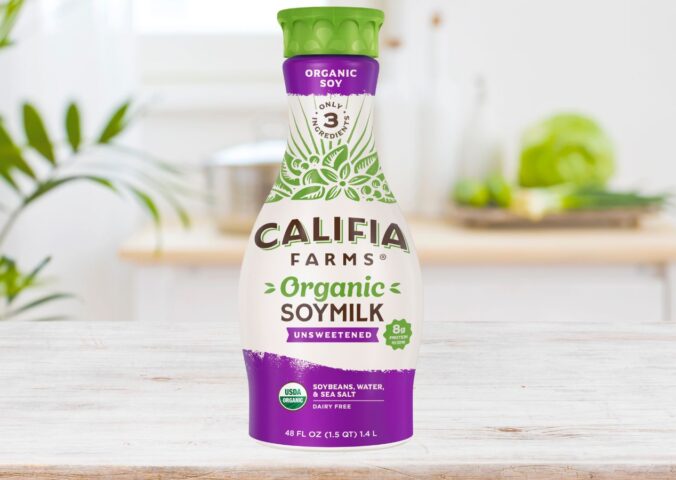If you’ve ever wondered whether vegan collagen can really keep your skin firm and youthful, or if you’re just wasting your money, Mic the Vegan has answers. Known for his research-based, myth-busting YouTube videos on nutrition and health, Mic recently tackled a hot topic in the supplement world: whether plant-based collagen alternatives measure up to animal-derived collagen products.
In a recent video, Mic, who holds a master’s degree in public health, explores the science behind collagen absorption, the role of the gut microbiome, and the sneaky influence of industry-funded research. He compares traditional collagen supplements made from animal tendons and bones with vegan collagen “builders” made from amino acids, yeast, and plant extracts. Drawing on recent peer-reviewed studies, Mic uncovers what these products actually do for your skin, and whether one truly comes out on top.
Read more: BYOMA Unveils Vegan ‘Glass Skin’ Serum Without Snail Mucin
What is collagen and how is it absorbed?
Collagen is a structural protein that supports elasticity in skin and connective tissue. Animal-based collagen supplements, Mic explains, are almost always “hydrolyzed collagen” – collagen broken down into small amino acid chains, or peptides, that are easier for the body to absorb. “We’re talking about a whole collagen molecule being about 300 kilodalton,” he says, “but then they’re grinding it down into something between about three and six.”
Vegan products can’t technically be called collagen, since collagen itself is animal-derived. But many contain the same amino acids, like glycine and proline, that form the building blocks of collagen. These products are often made with plant sources, yeast-derived compounds, and added nutrients like vitamin C, which is critical for collagen synthesis.
Do vegans absorb collagen amino acids differently?
One of the most surprising points Mic raises is about glycine absorption. In a Stanford study comparing vegan and omnivore twins, the vegan twins showed significantly higher blood glycine levels, even though they consumed slightly less of it.
Mic explains this may be due to differences in gut bacteria. A common microbe in meat-heavy diets, Bilophila wadsworthia, breaks down bile acids using up glycine in the process, “so you can’t digest it – you can’t have it yourself,” Mic says, adding, “the result is also, unfortunately, creating hydrogen sulfide, which fuels colorectal cancer.”
This microbial difference may give vegans an unexpected edge when it comes to collagen synthesis.
What does the research say about vegan vs. animal collagen?
The standout study in Mic’s video is a 2024 randomized, double-blind, placebo-controlled trial out of Taiwan. It directly compares animal collagen to a vegan collagen “biomimetic” supplement called Volal, which mimics the amino acid ratio of human collagen better than cow or fish collagen.
Participants took either five grams of animal collagen, five grams of Volal, or a placebo daily for eight weeks. “The results were not different between those two collagens from a statistical sense,” Mic says. Both improved skin elasticity and collagen density slightly more than the placebo, but neither outperformed the other in a meaningful way.
He notes that this trial appears to be independently funded – rare in this industry – and calls out its significance: “This vegan collagen builder…does as well as animal-based collagen.”
What about other studies?
Mic also discusses a second study on a vegan supplement called Veg Coll, which reported improvements in skin smoothness and even hair thickness. However, he cautions viewers that it lacked a control group and was funded by a collagen company in India: “Conflict of interest. That doesn’t mean it’s fake, again, it’s like a yellow flag.”
He also reviews a newer study that compared hydrolyzed collagen to a free amino acid blend mimicking collagen. The researchers measured collagen protein synthesis in muscle after exercise and found no significant difference between the two – or even improvement overall. Mic emphasizes, “The jury is still out,” especially since muscle collagen may respond differently than skin collagen due to slower turnover rates.
Nutrients that boost collagen naturally
Rather than rely solely on supplements, Mic points out that certain nutrients play an essential role in collagen formation. Vitamin C, for instance, is critical. Without it, the body can’t convert proline and lysine into the forms needed for functional collagen. “Scurvy itself really is the loss of the ability to make collagen,” he says.
He also references a small pilot study where women who ate one avocado a day showed improved skin elasticity and firmness. “Our findings suggest that daily oral avocado consumption may lead to enhanced elasticity and firmness of the facial skin,” the researchers wrote.
A $10 billion question
Mic closes the video by reminding viewers why many people are seeking alternatives to animal collagen: “Collagen itself is absolutely disgusting, from an animal. They’re literally grinding up, like, animal tendons and bones.” While marketed as a “byproduct,” collagen is part of a $10 billion industry that continues to fuel meat production.
So, do vegan collagen products work for skin aging? According to Mic’s review, the best available research suggests they perform just as well as animal-based versions. But more independent studies are needed to confirm those benefits and to sort science from marketing hype. Mic stresses that the vast majority of research in the area of collagen is industry funded, so all findings should be taken “with a grain of salt, or maybe a grain of glycene.”
As Mic puts it: “We’ve answered some questions. We’ve raised a few more. But it does appear that this vegan collagen builder, biomimetic collagen builder…is able to help with skin elasticity, firmness, etc., over placebo and to the same degree that animal-based collagen did.”
You can find more videos about vegan health, science, and nutrition on Mic the Vegan’s YouTube channel.
Read more: ‘The Secret Vegan Health Products That No-One Is Talking About’






